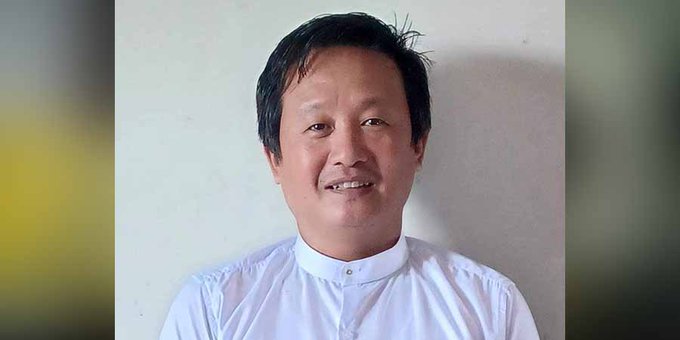April 16, 2024
Unanswered questions continue to surround the violent death of a Baptist minister in northern Myanmar’s Kachin state.
Masked gunmen shot and killed Nammye Hkun Jaw Li, who was at one time a leader in the Kachin Baptist Convention and was active in the Pat Jasan community-based anti-drug campaign.
Since the military regime seized control three years ago, Myanmar has become “the world’s largest opium producer” and “a hub for transnational organized crime,” the United Nations Security Council heard in an April 4 briefing.
Varied Accounts of Minister’s Death
Most sources—but not all—agree the shooting occurred March 18 in a village of Mogaung township, and Nammye Hkun Jaw Li, age 47, died of gunshot wounds. He is survived by his wife and three children.
In the most widely circulated account of the killing, Radio Free Asia reported three gunmen stormed the minister’s computer shop, shooting him twice in the abdomen and once in the head.
The March 19 Radio Free Asia account of the attack—subsequently picked up by other news outlets—reported Nammye Hkun Jaw Li was “active in anti-military protests” and said sources close to his family called the killing a targeted attack.
Other news sources offer a slightly different account of the killing.
The Chindwin News Agency identified Nammye Hkun Jaw Li as “a former Christian pastor” who was “known for his activism among members of the Kachin Baptist Convention.” Chindwin reported he was “gunned down in his home,” adding he was murdered “in cold blood in broad daylight.”
Democratic Voice of Burma English News reported Nammye Hkun Jaw Li was shot five times by an unknown group of masked gunmen who entered a computer shop within his home in Lan Kkwa village of Namti in Moguang Township.other accounts of the shooting,
Eleven Media Group reported the attack occurred shortly before 2 p.m. on March 11.Eleven Media Group in southern Myanmar offered a different report, identifying Nammye Hkun Jaw Li as a 40-year-old “former pastor of the Kachin Baptist Convention” who was shot by “three unidentified assailants on a motorcycle.” Unlike all other accounts of the shooting, Eleven Media Group reported the attack occurred shortly before 2 p.m. on March 11.
‘Crisis in Myanmar’
A spokesperson for 21Wilberforce, a human rights organization focused on international religious freedom, called the killing of Nammye Hkun Jaw Li “a tragedy.”
“Whether he was murdered because of his faith, his leadership in the community or both, Pastor Jaw Li is one of hundreds of thousands who have died or been displaced due to increased violence from the civil war in Myanmar,” the 21Wilberforce spokesperson said.
“The situation in the country continues to deteriorate. We are praying for Pastor Jaw Li’s family and the country. We stand in solidarity with the international community calling for attention to the crisis in Myanmar.”
While details about Nammye Hkun Jaw Li’s death remain murky, nobody questions violence has plagued Myanmar since the February 2021 military coup, and much of it has been directed toward ethnic and religious minorities.
In multiple instances, the Burmese military—known as the Tatmadaw—and its affiliates have targeted churches, ministers and Christian-majority communities.
In September 2021, the Burmese military shot and killed Baptist Pastor Cung Biak Hum. At the time, the pastor was attempting to help a church member extinguish a fire after the man’s home was set ablaze during military attacks.
In 2022, the Baptist World Alliance general council adopted a resolution condemning the military coup in Myanmar that has led to “a campaign of terror and violence.”
“Since the coup, the military has terrorized communities in Kachin, Karen, Kayah State, Chin State and Sagaing Region by burning villages, destroying churches, and detaining pastors and religious leaders,” the resolution stated.
Last year at this time, a Burmese court in Myitkyina sentenced Pastor Hkalam Samson, former president of the Kachin Baptist Convention, to six years in prison on charges of unlawful association, defaming the state and terrorism. Samson was a critic of human rights abuses by the ruling military regime.
In remarks to the United Nations Human Rights Council last September, High Commissioner Volker Turk condemned atrocities committed by the ruling military regime in Myanmar as “inhumanity in its vilest form.”
Noting more than 4,100 deaths at that time caused by the military and its affiliates, Turk said the military regime should be brought before the International Criminal Court.
In an April 4 U.N. Security Council briefing, several speakers addressed the humanitarian crisis in Myanmar and called for an end to the military regime’s “ongoing atrocities and human rights abuses.”
“We are horrified to hear continuing reports of village burnings, torture and beheadings, and other brutal acts committed amid the conflict,” U.S. Ambassador Robert Wood told the Security Council.
Wood noted Burmese military airstrikes on civilians “increased five-fold” in the past five months.
“This is in addition to the airstrikes, shelling and arson by the regime that have destroyed homes, schools, health care facilities and places of worship since the military illegally took power three years ago,” Wood said.
On the same day as the Security Council briefing, the U.N. Human Rights Council adopted a resolution calling on U.N. member states to refrain from the export, sale or transfer of jet fuel to the Burmese military.
This article written by Ken Camp is reprinted with permission from Baptiststandard.com

